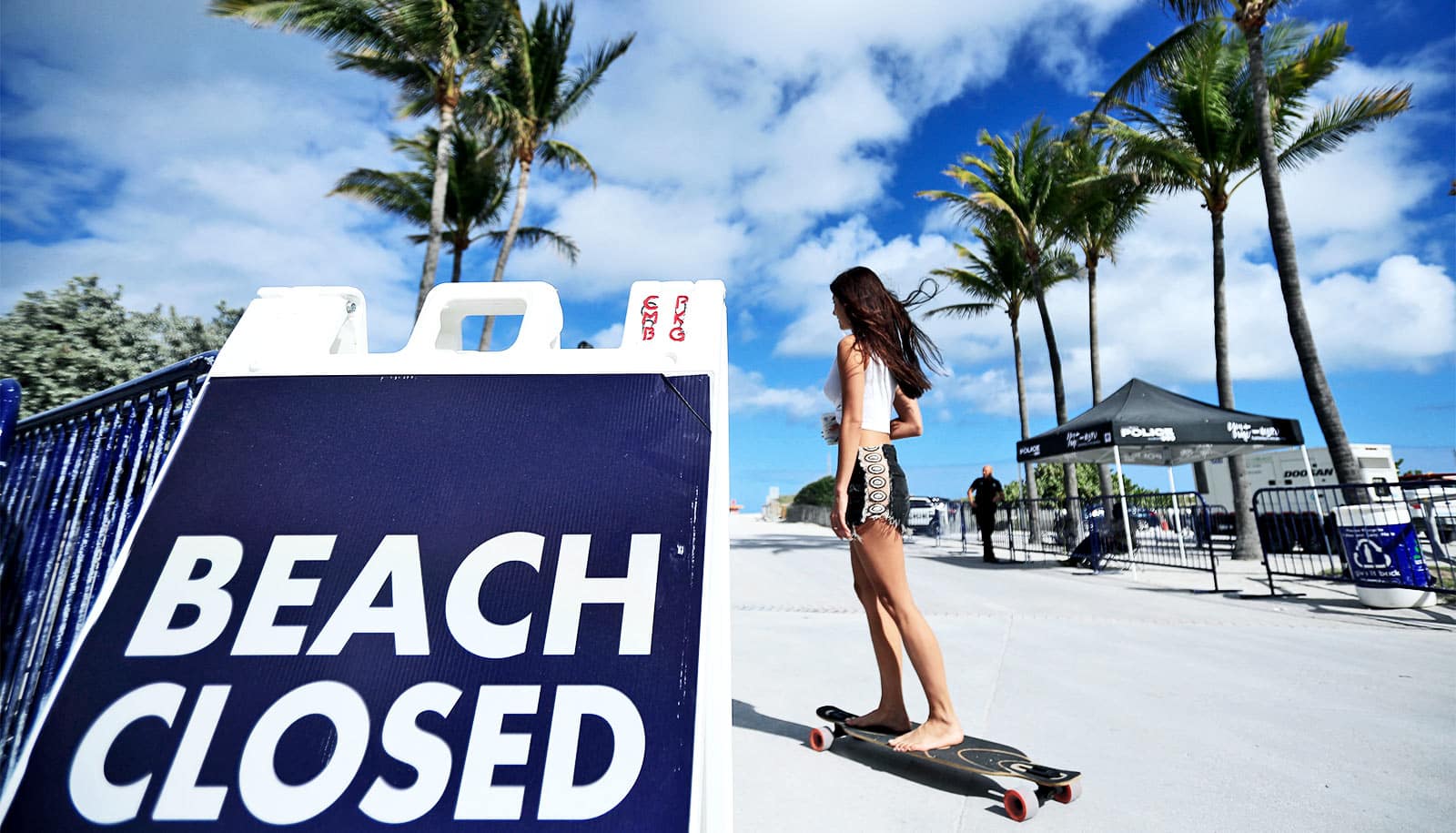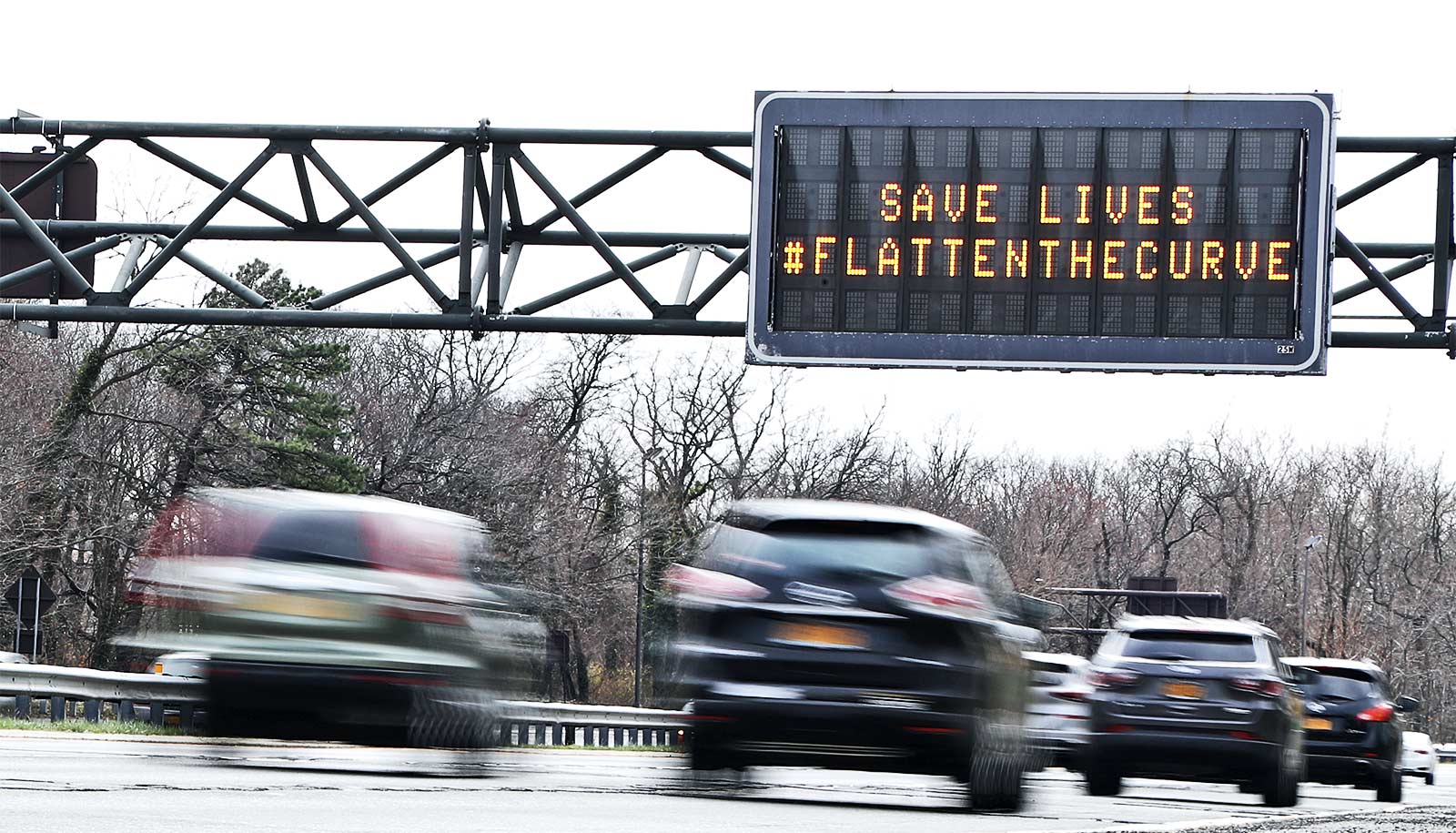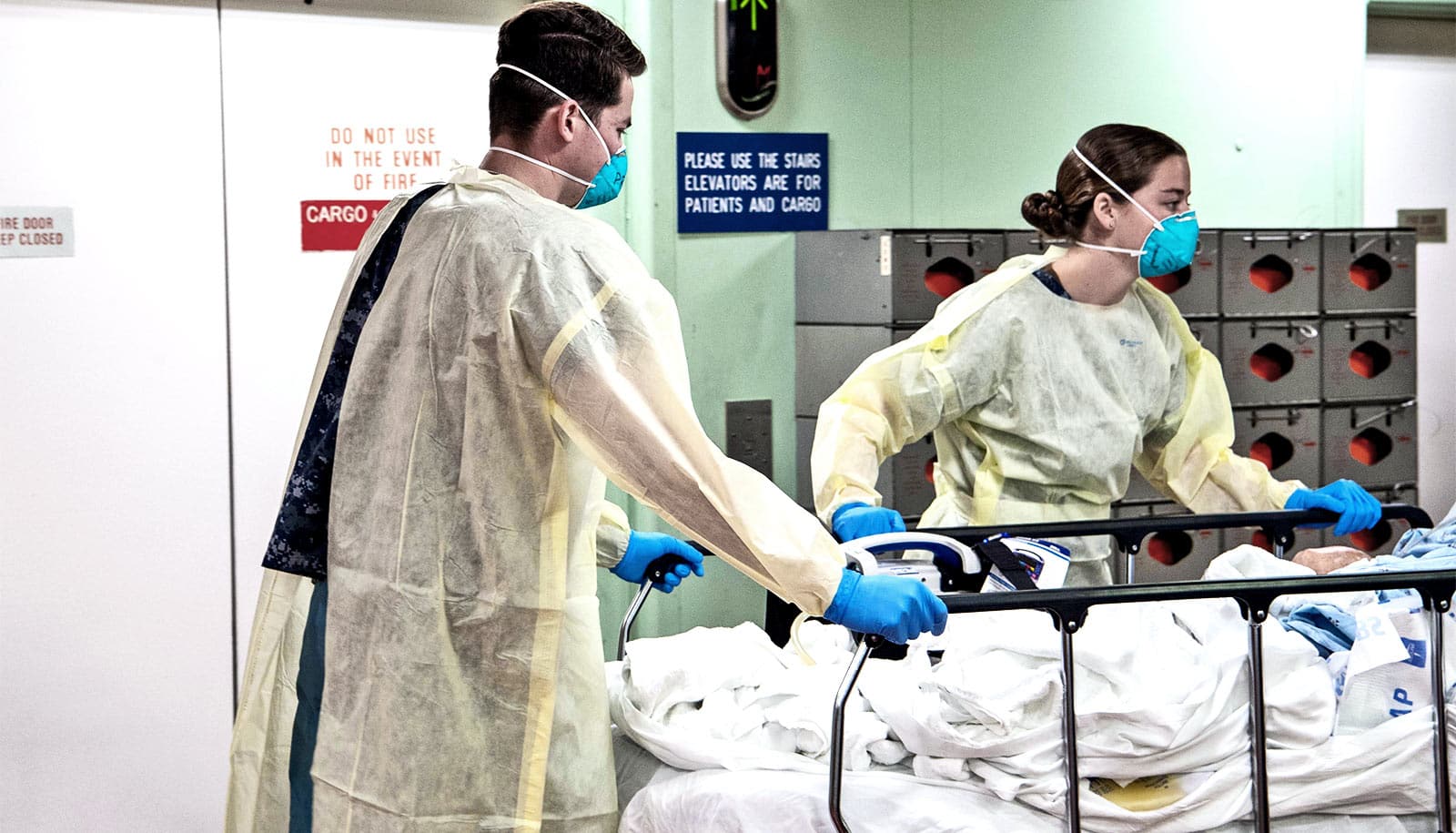A human challenge study could bring a coronavirus vaccine months sooner, argue bioethicists.
In a conventional Phase 3 trial, participants would be randomized to receive either the vaccine or control (such as a placebo), and go back to their usual living conditions, where they may or may not be exposed to the virus that causes COVID-19 disease. Researchers would follow them over time to assess whether the vaccine was effective at preventing infection.
By contrast, a human challenge study would require fewer participants than a conventional trial, and would involve exposing volunteers to the virus to determine the efficacy of the vaccine.
The paper, from Nir Eyal, director of the Rutgers Center for Population-Level Bioethics, Marc Lipsitch of the Center for Communicable Disease Dynamics at the Harvard T. H. Chan School of Public Health, and Peter G. Smith of the Tropical Epidemiology Group at the London School of Hygiene & Tropical Medicine, appears in the Journal of Infectious Diseases.
Initially, exposing participants to a lethal virus may seem highly unethical, Eyal notes. However, with the proper trial design and processes, the net risk for participants can remain low, or even lower than it would be outside of the trial, he explains.
“The low relative risk, that is, the risk as compared to the risk that participants would be facing outside the trial, is what makes human challenge studies such a happy marriage of accelerated vaccine testing and ethical treatment of study participants,” says Eyal, professor of bioethics at the School of Public Health, and a member in residence at the Rutgers Institute for Health, Health Care Policy, and Aging Research.
The evidence from a human challenge study, combined with findings from subsequent trials, could justify accelerated licensure of a vaccine, Eyal and his coauthors argue in the paper.
“It seems clear that, in the absence of an efficacious vaccine, the global death toll from COVID-19 will be enormous,” the authors write. “Advancing the registration and rollout of an efficacious vaccine, even by a few months, could save many thousands of lives, and commands enormous societal value.”
The Eyal and Smith discuss the new paper and the ethical considerations of coronavirus vaccine testing during the pandemic:
What is a human challenge study and how is it different than standard vaccine efficacy testing?
Smith: The most plausible way to halt the COVID-19 pandemic would be through widespread use of an effective vaccine. However, it is estimated that the fastest that vaccines can be developed and evaluated would be 12-18 months, during which time the number of deaths from COVID-19 is likely to be many millions globally.
Traditionally, after testing new vaccines in animals and conducting initial small studies in humans to determine the dose and whether it produces a good immune response, vaccines are evaluated in conventional Phase 3 trials, usually involving thousands of participants, who are randomized to receive either the vaccine or a placebo.
Participants are then followed for new cases of the disease and to determine if there are fewer cases in the vaccinated group than in the placebo group. For COVID-19, such a trial would typically take six months to a year to determine the effectiveness of the vaccine. This is how long it takes for enough cases of naturally acquired disease to have occurred to assess the effectiveness of the vaccine.
Because of the urgency of developing vaccines against COVID-19, we are proposing a controlled human challenge study as a fast-track alternative requiring fewer participants.
In a human challenge study, volunteers would receive either the vaccine or a placebo, and then would be exposed to the virus to determine the efficacy of the vaccine. Participants are then followed for two weeks after the challenge to determine if rates of COVID-19 disease, which is usually mild in this age group, are lower in the vaccinated group than in the placebo group.
Thus vaccine evaluation could be conducted in weeks rather than many months and efficacious vaccines could be made available considerably more quickly.
Is a human challenge study safe, and is it ethical?
Eyal: In our paper, my coauthors and I have argued that a human challenge study could be designed to be surprisingly safe if the specific processes are followed.
The study should only involve participants who have a relatively low risk of death or severe complications from the disease—for example, otherwise healthy people ages 20 to 45 years old, who are likely to be exposed to the virus anyway because they live in high-transmission areas. A vaccine would need to be tested for safety, dosing and immune response through Phase 1 and 2 trials before a challenge study could begin.
Participants also would need to be assured that their health will be closely monitored during the study, and that they would have access to intensive care and any available medicines if and immediately when they become infected.
While safety is the primary ethical concern for a human challenge study, another is whether participants understand the risks. Voluntary informed consent is of the utmost importance. In our paper, my coauthors and I have suggested limiting participation to adults, and ensuring they understand the risks and have decided, perhaps having compared the risks inside the trial to the risks outside it, or perhaps out of noble altruism, to volunteer.
Who could volunteer for a human challenge study?
Eyal: We should aim to find volunteers who have a relatively low risk of death or severe complications if they contract the disease, with a high background risk of getting infected outside the study, and who choose to participate for either medical reasons, because of the better chance of getting excellent care inside the study, or for the good of humanity—not for money.
There are risks, even though we would work to reduce them as much as possible. In our paper, my coauthors and I have argued that some people are likely to volunteer because the risks from participation are uncertain, but dramatically smaller than they may seem at first glance.
Why is a human challenge study appropriate in this case?
Eyal: Human challenge studies are routinely conducted for other diseases, such as seasonal flu, typhoid, and malaria. While unconventional, challenge studies are legal, and they are subject to ethical review and standards in order to ensure that the evidence is accepted and approved.
As my coauthors and I argue in our paper, we must consider unconventional approaches to address this novel coronavirus. The approach we have proposed is not without risks but has the potential to expedite candidate vaccine testing by many months.
In this current crisis, that easily could mean the difference of many thousands of lives saved.
Source: Rutgers University



